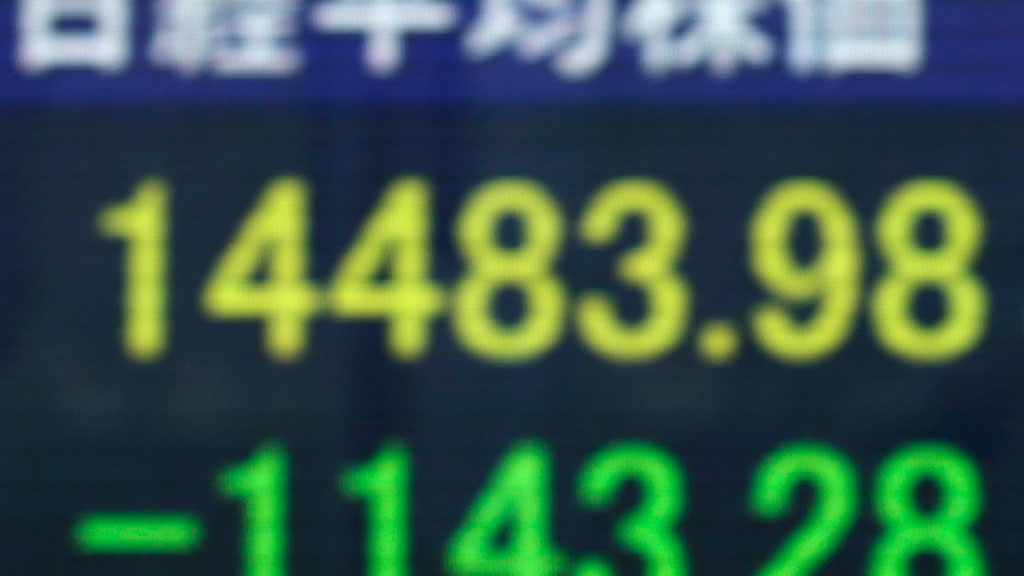Japanese shares tumble in biggest loss for two years
Share prices in Japan slide more than 7 per cent in their worst single day losses for more than two years – triggering slumps in markets around the world.

First they went up – and then they went down: spectacularly. Japan’s Nikkei index slid more than 7 per cent overnight, falling more than 1460 from their highest point of the day.
It was a sharp turnaround from earlier in the day, when stocks had climbed 2 per cent, but signs of weak manufacturing activity in China sparked concerns that its economy could be losing momentum.
That, combined with worries that the US Federal Reserve could begin scaling back its quantitative easing programme alarmed investors, with heavy selling across the board.
Japanese ministers rushed to calm nerves, blaming the weak Chinese data and insisting that the pace of the Nikkei’s recent rise had been faster than expected. The index has soared by 50 per cent so far this year, and analysts said all it took was a cluster of negative events to turn that into a slide.
Japanese jitters
Chief cabinet secretary Yoshide Suga insisted: “Japan’s economy is expected to gradually head for a recovery”, while other ministers stressed that the country was still committed to the policy known as Abenomics: Prime Minister Shinzo Abe’s strategy of countering deflation with a huge stimulus programme designed to expand the money supply.
However the rapid slide in Tokyo prompted jitters across European markets when they opened on Thursday morning.
In London, the FTSE had soared to a near-record high on Wednesday, but the following morning every share in the top 100 index fell, dragging the level down more than 100 points at the start of trading.
Many experts blamed what they called an inconsistent message from the US Federal Reserve, after the minutes of its last monetary policy committee meeting were published.
We’re going to see more of the same in the months ahead. Mike McCudden, Interactive Investor
The minutes show a sharp split between members, with some arguing for a slowdown in the quantitative easing programme, while others rallied behind the plan to continue purchasing bonds to boost the economic recovery. It has all created doubt over whether stock market rises will continue.
One analyst, Mike McCudden from the stockbroker firm Interactive Investor, predicted worse to come, after screens in the City of London showed a sea of red. “We’re going to see more of the same in the months ahead”, he warned.
-
Latest news
-
FactCheck: three promises Rishi Sunak has broken

-
FactCheck: three promises Keir Starmer has broken

-
How Sudan’s Frankenstein’s monster led to war that threatens to destroy country

-
‘Rishi Sunak has learned nothing from Liz Truss’, says Rachel Reeves1m

-
‘Reform UK will become the voice of opposition’: Nigel Farage2m

-




